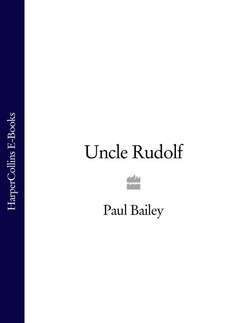Читать книгу Uncle Rudolf - Paul Bailey - Страница 7
ОглавлениеThe young dentist who examined me this afternoon commented on the remarkable condition of my teeth. He was surprised that a man of seventy should have a mouth so free from decay. My gums had receded, of course, which was only natural, and there was a small amount of plaque, but otherwise, dentally speaking, I was in splendid shape. He showed me my healthy molars on a closed circuit television screen as proof.
—You have taken good care of yourself, Mr Peters.
I did not tell him, or his wife, the hygienist who disposed of the plaque, that I had to thank Uncle Rudolf for my strong teeth. The story would have struck them as absurd. It is true, even so.
—Andrew, said my uncle (Andrei had become Andrew on the platform at Victoria Station, on the evening of the twenty-third of February 1937, minutes after my arrival.) Andrew, he said to me over breakfast the next day, that is burnt toast you are staring at. Cover it with jam by all means, or spread some butter on it, but eat it, if you please. I want to hear you crunching on it.
—Yes, Uncle, I responded dutifully, although I was mystified. My father had advised me to obey Uncle Rudolf’s every command.
I crunched on the blackened toast.
—Bravo, Andrew. Keep crunching.
I wondered if, perhaps, he was mad. I was only seven years old, but I knew something about madness already. There was a man who often stood outside the courthouse where my father worked as the chief clerk shouting that there was no justice but God’s. Human justice was a mirage, a phantom, he proclaimed. This man, who had a beard that went down to his knees – ‘To conceal eternal shame’ – was regarded as a harmless lunatic. He had nothing dangerous in his nature, my father reassured me. I was to pity him. I was to pity all those like him.
Would I have to pity Uncle Rudolf? He was smiling at me as I kept on crunching, and his smile was not that of a madman, I decided. No, he was not one of the unhappy souls my father had alerted me to.
—I was introduced to burnt toast, Andrew, by a Negro with a gleaming smile in a funny place called Hollywood. I expressed admiration for the dazzling whiteness of his teeth, and he told me his secret was burnt toast. He had been eating it all his life, like his parents before him.
Where was this funny place? I asked my uncle.
—You must be the one boy on the planet not to know where Hollywood is. It is in America, Andrew. In California, to be exact. It is the home of Mickey Mouse and Donald Duck. It is where motion pictures are made. I was there a couple of years ago, playing – and singing – the part of Barinkay in The Gypsy Baron. The movie was never completed. I was paid my wages and I came home to Europe, a sadder and a richer man. You are looking bewildered and your tea is getting cold.
I was aware that Uncle Rudolf was a famous singer – the whole town knew of his fame – but this talk of Hollywood was beyond my understanding.
—Have you never seen a motion picture, Andrew?
—No, I confessed. Mama says I must be protected from the cinema until I am older.
—Does she? She is strict in her faith, if I remember.
—Yes, Uncle.
—I will take you to the pictures today, if you eat up your toast and drink your tea. You deserve a treat after your long journey.
I crunched with a purpose and drained my cup.
—Where is she, Uncle? Can you tell me?
—No, to be honest. I wish I could. Your mother is safe somewhere, that much I can tell you.
Safe. Somewhere. On Uncle Rudolf’s lips, the words were comforting. The old words, of course.
